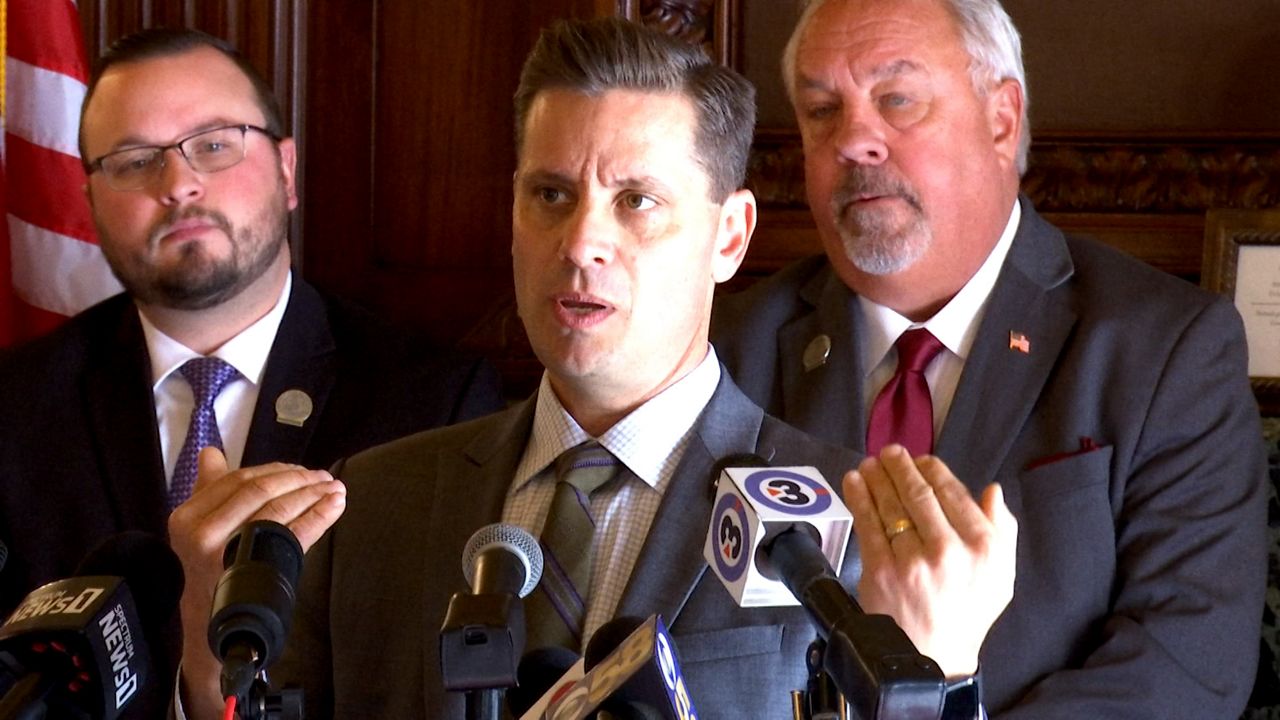MADISON, Wis. — As state lawmakers get ready to pass more bills in the coming weeks, we are getting a better sense of what those proposed laws would do, including how Republicans, who control the Legislature, hope to tackle Wisconsin's workforce problems.
Tuesday morning, Republican lawmakers unveiled their ''Stronger Workforce'' package, which is aimed at promoting reemployment, protecting safety net programs and eliminating fraud.
Lawmakers who authored the legislation told reporters that they feel like the state's workforce has changed, and now so must the government programs.
“We're seeing, again, this large number of high-paying entry-level jobs and this large workforce availability, so we want to connect these two,” State Sen. Chris Kapenga, R-Delafield, said.
The proposals include tieing unemployment benefits to the employment rate so there is a shorter period to collect when jobs are plentiful, as well as withholding benefits from those who don't show up for job interviews. There would also be more checks on program eligibility for those who request help.

“This governor, we feel, has not put a priority on solving the problem ahead of us, and we would like to change that with this set of bills,” State Rep. Warren Petryk, R-Town of Washington, said. “Whether you talk to grocery store owners, restaurant owners, large manufacturers, farmers, they're all in the same position.”
Lawmakers hope the proposals will lead to fewer 'help wanted' signs and more protection of government resources.
“I think it's incredibly important to protect people who, through no fault of their own, have lost their positions, but we also have to do everything we can to protect this system so it's there for people when they need it,” State Rep. Jon Plumer, R-Lodi, said.
Republicans said they want their package of bills passed by the end of February before the legislative session wraps up.
However, Democrats said the state's workforce problems deserve serious solutions. Senate Minority Leader Janet Bewley, D-Mason, said Wisconsin's unemployment rate is among the lowest in the country and touted Gov. Evers' leadership.
“While Evers invests in addressing the longstanding workforce challenges, the GOP seeks to continue their ongoing effort to make it harder for people who are unemployed to get back on their feet,” Bewley said in a statement.
The 'Stronger Workforce' Initiative includes:
Indexing UI Benefits to Unemployment Rate (LRB-2943/1)
- This bill would tie unemployment benefits to the state unemployment rate
- When the unemployment rate is higher, there would be a longer duration an individual could look for work and remain on the program
“Ghosting” employers by skipping a job interview (LRB-3005/1)
- Under this bill, if a UI claimant, as part of a work search requirement, schedules then does not show up for a job interview, DWD would be required to investigate and, if verified, deem the claimant ineligible for benefits that week
FoodShare Work Requirement (LRB-5571/1)
- This bill requires DHS to implement a work requirement for able-bodied adults without dependents to participate in the FoodShare program
Creating the “Reemployment Assistance” Program (LRB-4768/1)
- This bill would rebrand and update the Unemployment Insurance Program to Reemployment Assistance
- The bill requires DWD to match claimants with suitable work and make other changes that help transition individuals from programs to fully employed
Refusing work to remain on Medical Assistance (LRB-5788/1)
- The bill would prohibit able-bodied individuals without children from turning down job opportunities for the sole reason of continuing eligibility for Medical Assistance
Unemployment System Tune-Up (LRB-4346/1)
- This bill aims to fix problems with the Department of Workforce Development’s Unemployment Insurance (UI) program
- Changes would include: extended call center hours, weekly eligibility crosschecks, require DWD to audit work searches, update misconduct statutes, provide DOA to transfer employees during times of surge, provide JFC oversight of enhanced federal benefits and provide additional online resources to employers to connect with qualified workers
Conducting Regular Eligibility Checks (LRB-5789/1)
- This bill allows data sharing between government agencies and updates the systems which check eligibility to ensure up-to-date information is used to calculate benefits



